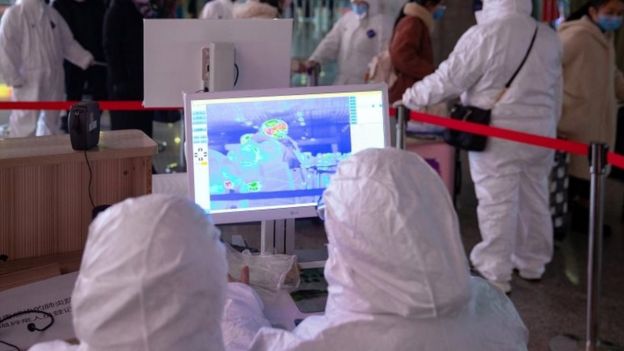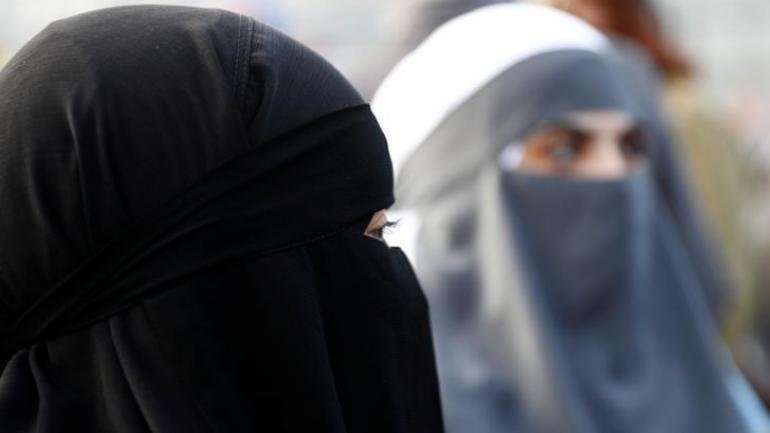The death toll from the new coronavirus now stands at 106, as cases of new infections have almost doubled in a day, Chinese authorities said.
The number of total confirmed cases in China rose to 4,515 as of 27 January, up from 2,835 a day earlier.
Travel restrictions have been tightened and wearing masks in public is now mandatory in some cities.
The city of Wuhan is at the epicentre of the outbreak but it has spread across China and internationally.
Wuhan, and the Hubei province it is located in, are already effectively in a lockdown with transport restrictions in and out of the area.
On Monday, authorities in Beijing confirmed a 50-year-old man had died – the first fatality in the Chinese capital from the virus.
Ontario International Airport will soon receive US Diplomats from Wahun, China. They say they have everything under control. Meanwhile, these girls are to return to China and they’re scared of the deadly Coronavirus. pic.twitter.com/cowUNiXCOj
— Romualdo Sanchez (@romualdotv) January 28, 2020
The coronavirus causes severe acute respiratory infection and there is no specific cure or vaccine.
Most of the deaths have been in Hubei province with the victims being elderly people or those with pre-existing respiratory problems.
A total of 60 people had been discharged from hospital after recovery, according to Chinese state media.
What steps is China taking?
The outbreak of the virus comes during the Lunar New Year celebration which usually sees millions travel across the country to visit relatives and friends.
 Travel is being severely restricted and monitored
Travel is being severely restricted and monitoredTo try and stop the spread of infections, many of the new year festivities have been suspended and the holiday period has been extended by three days to Sunday.
In the last 24 hours:
- Beijing and Shanghai have introduced a 14-day observation period for people arriving from Hubei
- Authorities have postponed the new semester for schools and universities nationwide, without giving a resumption date
- China Railway Group said would suspends hundreds of train lines throughout the country
- The immigration administration has encouraged citizens to reconsider the timing of overseas travel to reduce cross-border movement.
In Wuhan, travel from the city of 11 million people has been severely restricted and non-essential vehicles have been banned from the roads.
The city’s mayor though said about five million people had already left the city ahead of the holidays and before the lockdown.
Several major cities have suspended public transport systems, taxis and ride-hailing services.
The Disneyland attraction parks in Shanghai and Hong Kong have both been closed.
How is the virus spreading?
The new coronavirus is thought to have emerged from illegally traded wildlife at a seafood market in Wuhan and can now spread between people.
Chinese authorities over the weekend said the virus was – like a normal flu – able to spread during its incubation period and before any symptoms appeared.
This would set it apart from cases like Sars and Ebola and make it much harder to contain.
The World Health Organization (WHO) though said on Monday it remained unclear whether the virus was contagious before symptoms appear.











